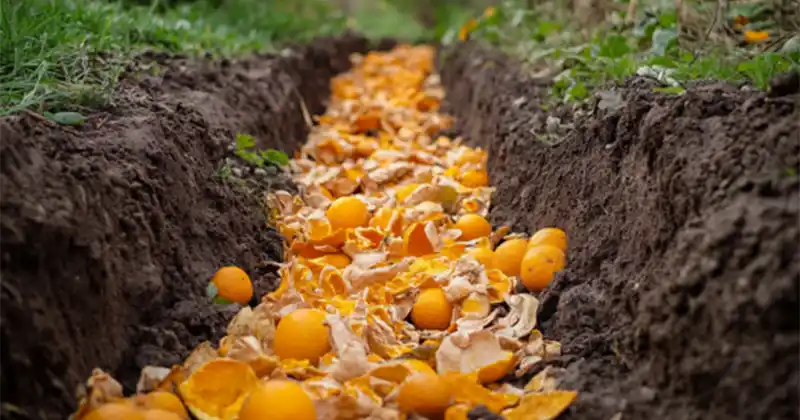Step-by-Step Guide to Burying Citrus Peels
1. Choose the Right Spot
Select a spot in your garden where you plan to grow nutrient-hungry plants, such as leafy greens, tomatoes, or root vegetables. Citrus peels are particularly beneficial in these areas. For instance, you might choose a patch that was previously used for growing potatoes and is now being prepped for planting choy and rainbow chard.
2. Prepare the Soil
Begin by digging a trench or hole in the designated area. Ensure the depth is sufficient to fully cover the citrus peels, which also aerates the soil and promotes healthy root development.
3. Add Citrus Peels
Once your trench is ready, evenly distribute your citrus peels across the bottom. You can use a variety of peels, including oranges, lemons, mandarins, and limes. Spreading them in a single layer helps them decompose more efficiently, avoiding a dense mass that could slow down the process.
4. Enhance with Dolomite Lime
To further enrich your soil and balance its pH levels, sprinkle a generous amount of dolomite lime over the citrus peels. Dolomite lime is excellent for neutralizing acidity, which is crucial when adding citrus to your garden. This not only sweetens the soil but also supports the beneficial microbes that aid in decomposition.
5. Cover and Wait
After applying the dolomite lime, cover the peels with the soil you initially dug out, and pat it down lightly. The soil may appear slightly raised initially, but it will settle as the peels decompose.
